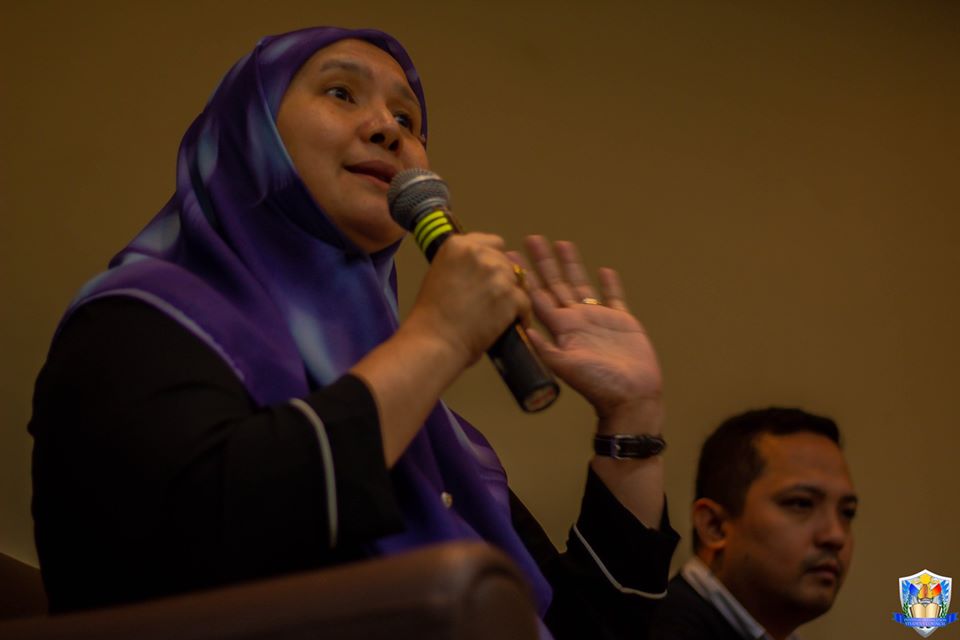The World Teacher’s Day Forum: Teachers’ Welfare in Armed Conflict Regions of Mindanao, organized by the Institute of Education last October 30, 2019, pioneered the first public discussion on the struggles and experiences of the teachers brought about by the Marawi siege.

It highlighted the various roles that the teachers play in the lives of the students and in the community during and after the war. The forum exposed the audience to the different testimonies and narratives of the invited speakers as presented in varied perspectives and lenses which acquainted the students to the harsh realities of the war to the education sector.
Gerg A. Cahiles’s, a CNN correspondent, talk was composed of footages and pictures of the actual battle between the government and the Maute jihadist group. These footages gave the audience a glimpse of the Marawi siege through his journalistic lens. His videos unfolded the story of those who were affected but never given much importance: the teachers and their students. He emphasized that for the teachers and the victims of the siege ‘s narratives to be heard, the real story should be told by those who have the platforms to provide the information.
The second talk was given by Dr. Tirmizy E. Abdullah, a professor from the University of Mindanao- Marawi. His talk focused on his lived experiences during the siege where he gave a detailed recount of how he, with his Muslim students, helped secure the students’ safety in his Madrasah class. He shared his personal struggles as a teacher and as an individual. Also, he candidly gave his opinions on the government’s failure to address the concerns of those who were affected.

Antonio L. Tinio, former member of the house of representatives and the chairperson of ACT Teachers Partylist, talked about teacher and education movement for teachers in armed conflict regions. Moreover, he shared his experiences assisting people in these armed-conflicted regions. He also stressed out that armed conflicts are also present in areas outside Mindanao where people, teachers and students, are also suffering the consequences of these conflicts and the violence it brings.

Dr. Nefertari A. Arsad, a faculty of the University of the Philippines – Islamic Studies, discussed the impact of armed conflicts in Madrasah education. Dr. Arsad started her talk by giving the audience an overview of what Madrasah is. Likewise, she discussed the content and scope of the Madrasah and the pillars of Madrasah education who are known as the Ulama – the possessors of knowledge on worship, law, and the Islamic life system. Dr. Arsad pointed out that geopolitical issues, militarization, disposition of lands and seas, socio-cultural norms, and corruption, were and are continually becoming the origin of armed conflicts in Muslim areas.
Moreover, while displacement, collateral damage, protracted conflict, and hidden scars are the general effects of armed conflict, discontinuation of education and lost opportunities for development are the impacts of these armed conflicts on Madrasah education.
The event culminates in an open forum where audience-participants were given the opportunity to communicate their inquiries to the guest speakers. One of the issues raised during the open forum were the importance of having and hearing different narratives on armed conflicts from the people who witnessed it and from the people who actually experienced it.

